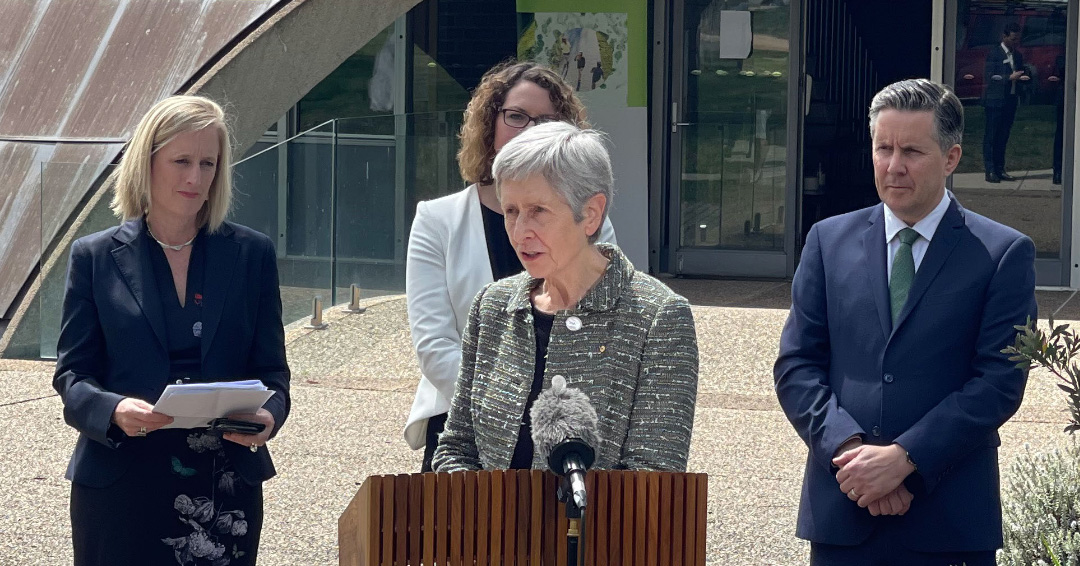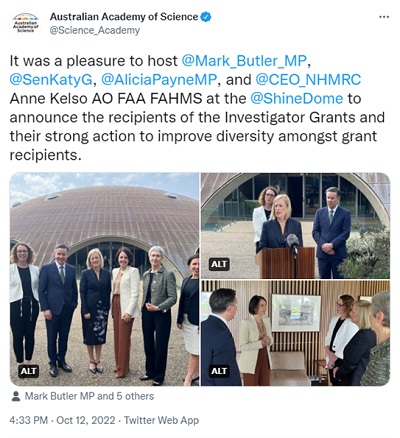Gender equity changes to NHMRC Investigator Grants are ‘game-changing’
- 4 mins read


The Academy welcomes the introduction of measures to address systemic disadvantage faced by female and non-binary senior researchers via the Investigator Grant scheme of the National Health and Medical Research Council (NHMRC).

From the 2023 Investigator Grant round, the NHMRC will set targets and interventions in the scheme to fund an equal number of Leadership grants for women and men. Emerging Leadership grants will continue to use existing gender equity targets.
Non-binary researchers will also now be included alongside women, in both the new measures and the existing measures for Emerging Leadership grants.
Academy Chief Executive Anna-Maria Arabia said, “The intervention to support women at the senior levels is game-changing as it directly removes a barrier that has historically led to their attrition from the research workforce.
“Importantly, this intervention sends a strong message to both women and girls that they can pursue a successful and fulfilling career in research.
“The NHMRC has heard the calls and have acted, and we strongly applaud them for it, and we commend them for including non-binary researchers.”
The NHMRC intervention is expected to lead to changes in practices within research organisations to enable greater collaboration between researchers, stronger practices to support all genders during career breaks, and better decision-making and research design – all of which will improve research outcomes for all Australians.
Learn more about the measures being introduced on the NHMRC website.
The Academy’s Women in STEM Decadal Plan recommends initiatives of this nature to address systemic inequity.
Government as a driver of policy, funder of programs and large employer of STEM professionals has a significant opportunity to show leadership by adopting best practice. This could include making the adoption of diversity measures and evaluation a condition of government funding, or incorporating them in procurement guidelines to encourage adoption of best practice in gender equity to flow through the supply chain and the economy.Women in STEM Decadal Plan, p21
The NHMRC has also committed to measuring the impact of this intervention, in line with a key recommendation of the Women in STEM Decadal Plan which proposes evaluating programs so that we know what works and investment can be directed to the most effective measures.
The Academy continues to strongly encourage medical research institutes, universities and publicly funded research agencies to become members of Science in Australia Gender Equity (SAGE), so that they can take a systematic and evidence-based approach to remove barriers faced by women in STEM. Organisations can also become Women in STEM Decadal Plan Champions by aligning their gender equity journey with the six opportunities listed in the Decadal Plan.
The Academy’s own Premier Awards have suffered from an under-representation of senior women applicants. In response, the Academy created the Ruby Payne-Scott Medal and Lecture for Women in Science, a career medal that recognises women researchers of the highest standing in the physical and/or biological sciences. This award, along with the Macfarlane Burnet and Matthew Flinders medals, is one of the most prestigious career awards of the Academy.
The Academy’s actions to improve gender diversity among our Fellowship are also succeeding. This year’s Fellows include 50% women and 50% men, the first time in the Academy’s history that gender parity has been achieved in the annual election of new Fellows.
Academy Council members have has also taken the Panel Pledge, promising to encourage meaningful representation of women in events.
Learn more about the Academy’s commitment to promoting and sustaining diversity and inclusion in the STEM sector.
Above: Dr Liz Dennis AC FAA FTSE was the recipient of the 2022 Ruby Payne-Scott Medal and Lecture.





